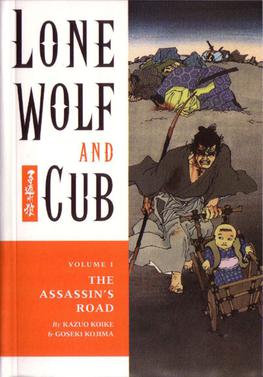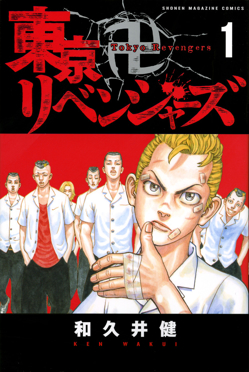
Katsuhiro Otomo is a Japanese manga artist, screenwriter, animator, and film director. He is best known as the creator of Akira, both the original 1982 manga series and the 1988 animated film adaptation. He was decorated a Chevalier of the French Ordre des Arts et des Lettres in 2005, promoted to Officier of the order in 2014, became the fourth manga artist ever inducted into the American Eisner Award Hall of Fame in 2012, and was awarded the Purple Medal of Honor from the Japanese government in 2013. Otomo later received the Winsor McCay Award at the 41st Annie Awards in 2014 and the 2015 Grand Prix de la ville d'Angoulême, the first manga artist to receive the award. Otomo is married to Yoko Otomo. Together they have one child, a son named Shohei Otomo, who is also an artist.

Takashi Miike is a Japanese film director, film producer and screenwriter. He has directed over 100 feature film, video, and television productions since his debut in 1991. His films span a variety of different genres, ranging from violent and bizarre to dramatic and family-friendly movies. He is a controversial figure in the contemporary Japanese cinema industry, with several of his films being criticised for their extreme graphic violence. Some of his best known films are Audition, Ichi the Killer, Visitor Q, Dead or Alive, One Missed Call, and various remakes: 13 Assassins, Hara-kiri, and Graveyard of Honor. He has also acted in more than 20 films.

Lone Wolf and Cub is a Japanese manga series created by writer Kazuo Koike and artist Goseki Kojima. It was serialized in Futabasha's Seinen manga magazine Weekly Manga Action from September 1970 to April 1976, with its chapters collected in 28 tankōbon volumes. The story was adapted into six films starring Tomisaburo Wakayama, four plays, and a television series starring Kinnosuke Yorozuya, and is widely recognized as an important and influential work.

Takuya Kimura is a Japanese actor, singer, and radio personality. He is regarded as a Japanese icon after achieving success as an actor. He was also a popular member of SMAP, one of the best-selling boy bands in Asia. In the media, he is known as a huge heartthrob in Japan, and a sex symbol. In April 1988, producer Johnny Kitagawa chose six out of the twenty boys to create a new boy band; "SMAP."

Fate/stay night is a Japanese visual novel game developed by Type-Moon for Windows on January 30, 2004. Fate/stay night Réalta Nua, was released on April 19, 2007, for the PlayStation 2, which replaced the sexual content with alternate scenes, added an extended ending scene to the Fate storyline, and featured voice actors from the 2006 anime series. It was later ported to Windows in 2011, PlayStation Vita in 2012, and Android and iOS in 2015. A remastered version of Réalta Nua was released for Nintendo Switch and PC via Steam in 2024, marking the first time the game was made available outside Japan. The plot focuses on a young mage named Shirou Emiya who becomes a warrior in a battle between "Servants" known as the Holy Grail War. Shirou bonds with a heroine through each route and confronts different adversaries participating in the war. The author, Kinoko Nasu, summarised Fate/stay night as:
...the story about legendary heroes and "a boy meets a girl."... The main theme is "conquering oneself." There are three story lines in Fate, each has a different themes. The first one is the "oneself as an ideal." The second one is "struggling with oneself as an ideal." The third one is "the friction with real and ideal." This game is describing the growth of the main character Emiya Shirou. The first storyline shows his slanted mind, the next storyline shows his resolve, and the last storyline gives another resolution for him as a human. All three storylines are essentially equal, but they have different forms.

Blade of the Immortal is a Japanese manga series written and illustrated by Hiroaki Samura. It was serialized in Kodansha's seinen manga magazine Monthly Afternoon from June 1993 to December 2012, with its chapters collected in 30 tankōbon volumes. The series is set in Japan during the mid-Tokugawa Shogunate period and follows the cursed samurai Manji, who has to kill 1,000 evil men in order to regain his mortality.

Tsutomu Nihei is a Japanese manga artist. Nihei has been drawing comics professionally since the mid-1990s. In 1995 he was awarded the Jiro Taniguchi Special Prize in that year's Afternoon Four Seasons Award for his submission, Blame. After working as an assistant to veteran comic artist Tsutomu Takahashi, Nihei went on to launch his debut series Blame! in Monthly Afternoon in 1997. Following the success of Blame!, he next penned Wolverine: Snikt! and Biomega. In 2009, Nihei returned to Afternoon to launch what would become his most successful series, Knights of Sidonia. An architectural student, Nihei's early work were mainly wordless, relying on visuals and backgrounds to tell their stories. His cyberpunk-influenced artwork has gained a strong cult following worldwide.
Hiroaki Samura is a Japanese manga artist, known for Blade of the Immortal, as well as several other short works. He has also done various illustrations for magazines and ero guro work.

Monthly Shōnen Jump was a shōnen manga magazine which was published monthly in Japan by Shueisha from 1970 to 2007 under the Jump line of magazines. It was the sister magazine to Weekly Shōnen Jump.
Rin Tohsaka is a fictional character introduced in the 2004 visual novel Fate/stay night by Type-Moon. Rin is a high school student who becomes the master mage of Archer, a spirit warrior. Together they participate in a war between other mages and warriors known as the Holy Grail War. In all routes of the visual novel, she meets and allies with rookie mage Shirou Emiya, two of them then form a romantic relationship in the novel's second route, Unlimited Blade Works, in which Rin is the main heroine. Outside the visual novel, Rin has appeared in printed and animated adaptations. She is also present in the prequel Fate/Zero, a series of light novels written by Gen Urobuchi, and multiple video games based on the Fate/stay night series.

Mnemosyne, also known as RIN: Daughters of Mnemosyne, is a six-episode Japanese anime television series produced by Xebec and Genco. The anime was produced to commemorate the tenth anniversary of the AT-X network, which it originally aired on. Funimation licensed the series in North America. The plot, rich in the mix of murder and action, is set in modern and near-future Tokyo, and revolves around Rin Asougi, an immortal private investigator. A light novel and a manga adaptation have also been published.
Tengai Retrogical is a Japanese manga series written and illustrated by Rin Asano. It was serialized in Mag Garden's Monthly Comic Blade magazine from 2002 to 2006 and published in seven volumes.

Marvel Anime is a 2010 Japanese superhero anime television series by Madhouse and is based on the Marvel Comics universe. It is an anthology collection consisting of four twelve-episode animated series and two direct-to-video films. The entire series notably depicts Iron Man, Wolverine, Blade, and the members of the X-Men going to Japan.

Blade of the Immortal is a 2017 samurai action film starring Takuya Kimura and Hana Sugisaki and directed by Takashi Miike. It is based on the successful manga series by Hiroaki Samura. The narrative focuses on the immortal samurai Manji (Kimura) who becomes the bodyguard of an orphan teenager named Rin Asano (Sugisaki) as they go on a journey of vengeance against the members of the Ittō-ryū samurai who killed the child's parents.

Wave, Listen to Me! is a Japanese manga series by Hiroaki Samura. It has been serialized in Kodansha's seinen manga magazine Monthly Afternoon since July 2014, with its chapters collected in ten tankōbon volumes as of April 2023. The manga is published in North America by Kodansha Comics. An anime television series adaptation produced by Sunrise aired from April to June 2020 on MBS's Animeism block. A television drama adaptation aired on TV Asahi from April to June 2023.

Blade of the Immortal is an anime television series based on the manga series of the same name created by Hiroaki Samura. The series is set in Japan during the mid-Tokugawa Shogunate period and follows the cursed samurai Manji, who has to kill 1000 evil men in order to regain his mortality.

Tokyo Revengers is a Japanese manga series written and illustrated by Ken Wakui. It was serialized in Kodansha's shōnen manga magazine Weekly Shōnen Magazine from March 2017 to November 2022, with its chapters collected in 31 tankōbon volumes.















